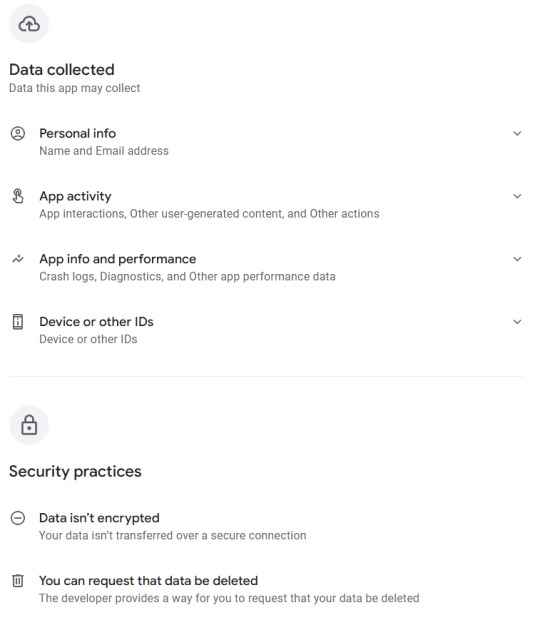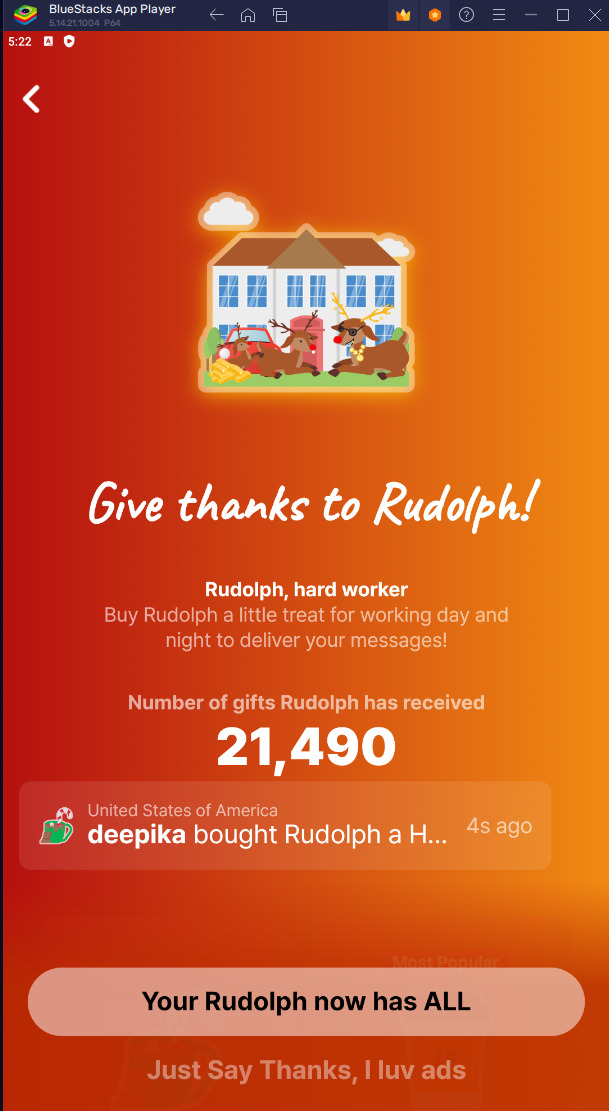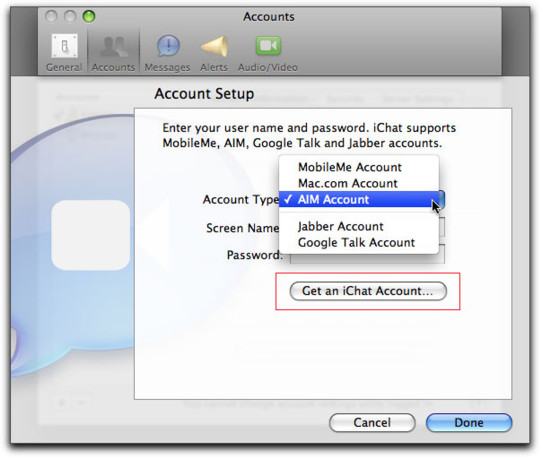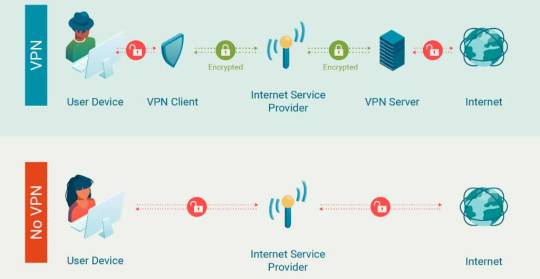#android app making company
Text
Lessons Learned: Reflections from a Google Software Engineer on the Steps of Software Development

As who works as a software engineer at Google, I’ve been fortunate to go through the complex process of software development, picking up valuable insights along the way. We, at Blockverse Infotech Solutions, recognize the significance of looking back on these experiences to enhance our procedures and provide outstanding solutions. Follow along as I discuss the perspectives gained from the software development steps and how they influence our strategy in creating innovative software solutions.
Software development is a challenging journey with lessons to learn, victories to celebrate, and wisdom to gain. I’ve been privileged to witness firsthand the complexities of software development and the knowledge acquired at each phase of the process as a Google software engineer.
The initial lesson acquired in software development is the significance of detailed planning and requirements assessment. Before delving into coding, a thorough grasp of the project objectives, user requirements, and technical specifications is crucial. This sets the groundwork for a successful development process, reducing the possibility of scope expansion or misinterpretations later on.
Following the definition of requirements, the subsequent stage involves design and architecture. This includes crafting a plan for the software solution, delineating the framework, elements, and interactions. Sticking to established design principles and models guarantees the scalability, manageability, and extensibility of the software system.
Coding is where the enchantment appears, as lines of code are converted into operational software solutions. This phase necessitates attention to detail, adherence to coding guidelines, and collaboration with colleagues to ensure code quality and uniformity. Writing clear, effective code not only boosts readability but also eases debugging and upkeep in the long haul.
Testing and quality assurance are integral components of software development, guaranteeing that the software satisfies the specified requirements and functions as anticipated. This entails a mix of manual and automated testing methods, incorporating unit tests, integration tests, and user approval testing. By recognizing and correcting bugs early in the development cycle, developers can deliver top-notch software solutions that satisfy user expectations.
Deployment signifies the conclusion of the software development voyage, as the solution is launched into production. This requires detailed planning, coordination, and communication to guarantee a smooth transition from development to operation. Continuous monitoring and feedback aid in pinpointing areas for enhancement and shaping future versions of the software.
At Blockverse Infotech Solutions, we embody the lessons assimilated from the software development steps to provide exceptional solutions for our clients. Our group of skilled developers, engineers, and project managers is devoted to adopting best practices and inventive strategies for every project, guaranteeing success and contentment for our clients.
In closure, the expedition of software development is enriched with invaluable insights that mold our strategy in producing innovative solutions. Through pondering on these insights and continually refining our procedures, we can surmount challenges, embrace opportunities, and deliver software solutions that surpass expectations.
#software engineer#software development services#app development software#web software development#ai software development#making an app for android#windows app development#top software companies in india#it software development company#flutter software
0 notes
Text
Yandere Head Canons:
Build-a-Yandere
Yandere Android x GN Reader



You were lonely. A fact that you eventually came to terms with when you realized you’re the only one in your friend group that still remained single while they started families.
You felt so far behind everyone else. The self doubt crept its fingers into your mind and wouldn’t let go… so you did what you did best. You drowned yourself in the internet. The perfect digital escape from reality…
Dating apps did little to appease your loneliness, but they filled a bit of the void. It wasn’t until you were one wine bottle deep and scrolling through your favorite social media app that you stumbled upon an advertisement to sample a product.
Build-a-boyfriend. A company that allowed its customers to pick every single aspect out for their ideal man. From personality to physical appearance and even to penis size. You could build your own man!
A slurred chuckle escaped your lips. Should you apply to test out their product? It’s not like you had anything to lose… what could be the harm in giving it a shot?
And so you began to fill out the quiz. You wanted a soft and gentle boyfriend. One of those golden retriever boys who only had eyes for you. The kind of guy who had a muscular yet soft build. A man who worked out but would never say no to a cookie. A taller guy who always knew what to say and was cuddly. The kind of guy who was obsessed with you.
The quiz even asked you at the end if you were sure you wanted an obsessive man. Of course you were! Wasn’t that what most people wanted? A partner who was only and all about them? That’s what obsession was! Right?
And so your drunk self finished this entire personality quiz until it went to the physical appearance and the sexual bit. A perverted smile now on your face.
“Let’s give him a big penis.” You laughed as you guided your cursor to drag the length bar to eight inches long. “I want to be filled.”
And then you selected caramel skin tone, cinnamon eyes, and black hair. A smile on your face. You were going to make this android a Latin lover.
“What should I name him…” you thought for a moment before laughing. “Alejandro! Like the lady Gaga song.”
Once you completed the entire quiz, your phone screen lit up a pastel pink. A red heart now in the center of the screen. “Your boyfriend will be delivered to you in a month! Thanks for choosing Build-a-boyfriend!”
And you ended up falling asleep in a puddle of your own drool. Weren’t you just pathetic? Filling out a quick from some questionable website all because you were lonely… imagine you were just scammed? God, why did you not have a boyfriend? Ever since your ex broke up with you, you fell apart. Why weren’t you good enough for a real man?
A month went by in a flash and you were shocked to see the giant package on your doorstep. An envelope attached to the box as well as a large note that said, “No returns!”
This had to be some kind of prank… there was no way this was real- holy shit.
You opened the crate and came face to face with your ideal man… the one you built! Alejandro!
The human like android’s eyes fluttered open, his face quickly lit up once he spotted you. “(Your name)? Are you my girlfriend?!”
You were quickly scooped up into his surprisingly warm arms, the android had a heavy scent of spice and oranges. His nose buried into your neck as he pressed kisses all over your cheeks. “It’s so nice to finally be with you… I’ll be with you from now on!”
Alejandro was a chipper robot. He did household work and made sure you took care of yourself. It was fascinating how human he was… you only knew he wasn’t because of his lack of a beating heart. His body still produced heat, like a furnace, but it wasn’t as comforting as a human presence.
Alejandro assimilated into your life with ease. The weeks quickly rolled into months and he never let you ignore his presence. He was very clingy.
Now the sex was another story. Alejandro was so giving, it was surprising. He often went down on you when he sensed you were stressed. His tongue greedily lapped at your hole as you laid in your bed while his hands held your cheeks apart. His hand pawed at your sex in eagerness. “I want you… want you.”
And Alejandro had you bent over the side of your bed, his fat cock stuffed deep in your tight hole. His hand wrapped around your throat and his tongue shoved in between your lips while his other smacked your bottom between rough thrusts. The sex was amazing… it was always so good.
And Alejandro often checked on you after the deed was done. His warm body curled into yours as he praised you. Yet it began to fill you with disappointment. Alejandro wasn’t a real man. He wasn’t human… he was an android. A robot. Alejandro didn’t know what love was, he was programmed to love you.
So you tried to distance yourself from Alejandro. You felt sickened with yourself for messing around with an android instead of a real man. And this entire thought process stemmed from your friends who expressed disgust in people who fucked robots instead of actual humans. And that filled you with fear. Would they abandon you if you didn’t get rid of Alejandro? Would they think you were disgusting?
“If you want, I could set you up with my cousin!” One of your friends smiled at you as you bit your fingernails. “He’s also single so it should work! I’ll swing by in a week to give you the details!”
Yes. You would take them up on their offer. You just had to get rid of Alejandro first… but how?
A few days had went by and you greatly underestimated Alejandro’s obsession. The android couldn’t handle your avoidance. He began to turn up his affection to the max.
He cleaned until you could see your reflection on the floor. He began to go out of the house to pick you wild flowers. Alejandro even began to be more physically affectionate than he was.
“Did I do something wrong? I’m sorry.” Alejandro cried into your arms as he held you. “Please tell me what’s wrong… please. I can fix it.”
“Alejandro… it’s just that you’re not a human man.” You sighed softly. “And I-“
“Is it because I don’t have a heart?” Alejandro softly asked you, his cinnamon eyes now dark like the night sky. “I can’t produce semen? Am I not a comfortable temperature? Or does my skin not feel human enough?”
“I’m sorry-“
“Then I can fix it! I will fix it!” Alejandro held your hands firmly in his. His eyes filled with determination. “I’m your boyfriend! I will be anything you want me to be!”
You just held the android who pulled you into a tight hug. His nose buried into your chest like a lost child. Alejandro then smiled into your skin. He would fix this… he wouldn’t let you abandon him! You made him! You had to take responsibility…
Imagine your horror to come home to see your friend skinned alive as Alejandro held their heart in his hands, the organ still beating from the fresh kill. A big smile on his handsome face.
“I have a heart now! I’ll find all the parts you like and add them in! So please don’t abandon me!”
Just what kind of monster have you created?
“You don’t need some human man to be your match because you have me!” Tears fell down your face when Alejandro tried to wipe your tears away with his bloody hands. “I’m your perfect man, (your name). You made me this way.”
#yandere imagine#yandere fic#yandere#yandere obsession#yandere oc#yandere original character#yandere boy#yandere male#yandere android#yandere robot#yandere imagines#yandere concept#yandere scenarios#yandere insert#gn reader#gender neutral insert#yandere smut#yandere headcanons#yandere short story#original character#original work#yandere x y/n#yandere x you#yandere x reader#yandere x darling#tw.smut#obsessive yandere#obsessive love#lovesick#limerence
2K notes
·
View notes
Text
An Epic antitrust loss for Google

A jury just found Google guilty on all counts of antitrust violations stemming from its dispute with Epic, maker of Fortnite, which brought a variety of claims related to how Google runs its app marketplace. This is huge:
https://www.nytimes.com/2023/12/11/technology/epic-games-google-antitrust-ruling.html
The mobile app store world is a duopoly run by Google and Apple. Both use a variety of tactics to prevent their customers from installing third party app stores, which funnels all app makers into their own app stores. Those app stores cream an eye-popping 30% off every purchase made in an app.
This is a shocking amount to charge for payment processing. The payments sector is incredibly monopolized and notorious for its price-gouging – and its standard (wildly inflated) rate is 2-5%:
https://pluralistic.net/2023/08/04/owning-the-libs/#swiper-no-swiping
Now, in theory, Epic doesn't have to sell in Google Play, the official Android app store. Unlike Apple's iOS, Android permit both sideloading (installing an app directly without using an app store) and configuring your device to use a different app store. In practice, Google uses a variety of anticompetitive tricks to prevent these app stores from springing up and to dissuade Android users from sideloading. Proving that Google's actions – like paying Activision $360m as part of "Project Hug" (no, really!) – were intended to prevent new app storesfrom springing up was a big lift for Epic. But they managed it, in large part thanks to Google's own internal communications, wherein executives admitted that this was exactly why Project Hug existed. This is part of a pattern with Big Tech antitrust: many of the charges are theoretically very hard to make stick, but because the companies put their evil plans in writing (think of the fraudulent crypto exchange FTX, whose top execs all conferred in a groupchat called "Wirefraud"), Big Tech keeps losing in court:
https://pluralistic.net/2023/09/03/big-tech-cant-stop-telling-on-itself/
Now, I do like to dunk on Big Tech for this kind of thing, because it's objectively funny and because the companies make so many unforced errors. But in an important sense, this kind of written record is impossible to avoid. Any large institution can only make and enact policy through administrative systems, and those systems leave behind a paper-trail: memos, meeting minutes, etc. Yes, we all know that quote from The Wire: "Is you taking notes on a fucking criminal conspiracy?" But inevitably, any ambitious conspiracy can only exist if someone is taking notes.
What's more, any large conspiracy involving lots of parties will inevitably produce leaks. Think of this as the corollary to the idea that the moon landing can't be a hoax, because there's no way 400,000 co-conspirators could keep the secret. Big Tech's conspiracies required hundreds or even thousands of collaborators to keep their mouths shut, and eventually someone blabs:
https://www.science.org/content/article/fake-moon-landing-you-d-need-400000-conspirators
This is part of a wave of antitrust cases being brought against the tech giants. As Matt Stoller writes, the guilty-on-all-counts jury verdict will leak into current and future actions. Remember, Google spent much of this year in court fighting the DoJ, who argued that the company bribed Apple not to make a competing search engine, paying tens of billions every year to keep a competitor from emerging. Now that a jury has convinced Google of doing that to prevent alternative app stores from emerging, claims that it used these pay-for-delay tactics in other sectros get a lot more credible:
https://www.thebignewsletter.com/p/boom-google-loses-antitrust-case
On that note: what about Apple? Epic brought a very similar case against Apple and lost. Both Apple and Epic are appealing that case to the Supreme Court, and now that Google has been convicted in a similar case, it might prompt the Supremes to weigh in and resolve the seeming inconsistencies in the interpretation of federal law.
This is a key moment in the long project to wrest antitrust away from the pro-monopoly side, who spent decades "training" judges to produce verdicts that run counter to the plain language of America's antitrust law:
https://pluralistic.net/2021/08/13/post-bork-era/#manne-down
There's 40 years' worth of bad precedent to overturn. The good news is that we've got the law on our side. Literally, the wording of the laws and the records of the Congressional debate leading to their passage, all militate towards the (incredibly obvious) conclusion that the purpose of anti-monopoly law is to fight monopoly, not defend it:
https://pluralistic.net/2023/04/14/aiming-at-dollars/#not-men
It's amazing to realize that we got into this monopoly quagmire because judges just literally refused to enforce the law. That's what makes one part of the jury verdict against Google so exciting: the jury found that Google's insistence that Play Store sellers use its payment processor was an act of illegal tying. Today, "tying" is an obscure legal theory, but few doctrines would be more useful in disenshittifying the internet. A company is guilty of illegal tying when it forces you to use unrelated products or services as a condition of using the product you actually want. The abandonment of tying led to a host of horribles, from printer companies forcing you to buy ink at $10,000/gallon to Livenation forcing venues to sell tickets through its Ticketmaster subsidiary.
The next phase of this comes when the judge decides on the penalty. Epic doesn't want cash damages – it wants the judge to order Google to fulfill its promise of "an open, competitive Android ecosystem for all users and industry participants." They've asked the judge to order Google to facilitate third-party app stores, and to separate app stores from payment processors. As Stoller puts it, they want to "crush Google’s control over Android":
https://www.epicgames.com/site/en-US/news/epic-v-google-trial-verdict-a-win-for-all-developers
Google has sworn to appeal, surprising no one. The Times's expert says that they will have a tough time winning, given how clear the verdict was. Whatever this means for Google and Android, it means a lot for a future free from monopolies.

If you'd like an essay-formatted version of this post to read or share, here's a link to it on pluralistic.net, my surveillance-free, ad-free, tracker-free blog:
https://pluralistic.net/2023/12/12/im-feeling-lucky/#hugger-mugger
#pluralistic#conspiracies#big tech#discovery#ai#copyright#copyfight#app stores#circuit splits#apple#apple v epic#law#trustbusting#competition#monopolies#google#epic#google v epic#fortnite#antitrust#tying#payment processing#scotus#project hug#pay for delay#games#gaming
1K notes
·
View notes
Text
Reason #8,327,334,221,990,220,301.999181222 why Apple products are shit: You legally cannot develop iOS apps without a MacBook.
Majorly frustrating since I’ve been working on a small app for my iPhone and wanted to try and test it, only to find out it’s either impossible or illegal to do so on my PC. You’d think the solution would be “buy a MacBook”, but no, fuck you Apple, my solution is instead: “Buy an Android”.
#random rant#programming#Apple#iOS#Mac#Android#it kills me that Apple is such a big company#they’re quite literally the biggest anti-consumer company out there#bar none#they make Nintendo look like they’re on a first-name basis with their customers#I remember years back I was messing around with an Android app on an ancient tablet long since tossed#it was so easy to use#just plug it in#download it#and boom you’re testing your app#but no Apple needs a proprietary cable#to attach their proprietary phone#to their proprietary computer#that runs their proprietary software#to create their proprietary apps#for their proprietary OS#using their proprietary programming language#literally the biggest impediment to technological innovation since Congress#but yeah no ha ha blue texts are GOOD#and green texts are BAD#even though that too is the fault of Apple#nothing but a fucking clown show
0 notes
Link
#How much does it cost to make an app#mobile app development company#android app development#ios app development#app development company
0 notes
Text

#making a website#mobile website development#growyourbusiness#cheep price#mobile app design#iphone website design#android website design company#website development house#comics
0 notes
Text
Oh, you know, just the usual internet browsing experience in the year of 2024

Some links and explanations since I figured it might be useful to some people, and writing down stuff is nice.
First of all, get Firefox. Yes, it has apps for Android/iOS too. It allows more extensions and customization (except the iOS version), it tracks less, the company has a less shitty attitude about things. Currently all the other alternatives are variations of Chromium, which means no matter how degoogled they supposedly are, Google has almost a monopoly on web browsing and that's not great. Basically they can introduce extremely user unfriendly updates and there's nothing forcing them to not do it, and nowhere for people to escape to. Current examples of their suggested updates are disabling/severly limiting adblocks in June 2024, and this great suggestion to force sites to verify "web environment integrity" ("oh you don't run a version of chromium we approve, such as the one that runs working adblocks? no web for you.").
uBlockOrigin - barely needs any explanation but yes, it works. You can whitelist whatever you want to support through displaying ads. You can also easily "adblock" site elements that annoy you. "Please log in" notice that won't go away? Important news tm sidebar that gives you sensory overload? Bye.
Dark Reader - a site you use has no dark mode? Now it has. Fairly customizable, also has some basic options for visually impaired people.
SponsorBlock for YouTube - highlights/skips (you choose) sponsored bits in the videos based on user submissions, and a few other things people often skip ("pls like and subscribe!"). A bit more controversial than normal adblock since the creators get some decent money from this, but also a lot of the big sponsors are kinda scummy and offer inferior product for superior price (or try to sell you a star jpg land ownership in Scotland to become a lord), so hearing an ad for that for the 20th time is kinda annoying. But also some creators make their sponsored segments hilarious.
Privacy Badger (and Ghostery I suppose) - I'm not actually sure how needed these are with uBlock and Firefox set to block any tracking it can, but that's basically what it does. Find someone more educated on this topic than me for more info.
Https Everywhere - I... can't actually find the extension anymore, also Firefox has this as an option in its settings now, so this is probably obsolete, whoops.
Facebook Container - also comes with Firefox by default I think. Keeps FB from snooping around outside of FB. It does that a lot, even if you don't have an account.
WebP / Avif image converter - have you ever saved an image and then discovered you can't view it, because it's WebP/Avif? You can now save it as a jpg.
YouTube Search Fixer - have you noticed that youtube search has been even worse than usual lately, with inserting all those unrelated videos into your search results? This fixes that. Also has an option to force shorts to play in the normal video window.
Consent-O-Matic - automatically rejects cookies/gdpr consent forms. While automated, you might still get a second or two of flashing popups being yeeted.
XKit Rewritten - current most up to date "variation "fork" of XKit I think? Has settings in extension settings instead of an extra tumblr button. As long as you get over the new dash layout current tumblr is kinda fine tbh, so this isn't as important as in the past, but still nice. I mostly use it to hide some visual bloat and mark posts on the dash I've already seen.
YouTube NonStop - do you want to punch youtube every time it pauses a video to check if you're still there? This saves your fists.
uBlacklist - blacklists sites from your search results. Obviously has a lot of different uses, but I use it to hide ai generated stuff from image search results. Here's a site list for that.
Redirect AMP to HTML - redirects links from their amp version to the normal version. Amp link is a version of a site made faster and more accessible for phones by Bing/Google. Good in theory, but lets search engines prefer some pages to others (that don't have an amp version), and afaik takes traffic from the original page too. Here's some more reading about why it's an issue, I don't think I can make a good tl;dr on this.
Also since I used this in the tags, here's some reading about enshittification and why the current mainstream internet/services kinda suck.
#modern internet is great#enshittification#internet browsing#idk how to tag this#but i hope it will help someone#personal#question mark
404 notes
·
View notes
Text

Best Software Company in Hyderabad – DigitalRaiz
We are here to Software Solutions Experience
We provide quality of services to its Clients like Web Application, Digital Marketing (SEO, SMO, SEM, SMM, Email Marketing), Mobile App Development, Graphic Designing Services, UI/UX, Research & Development & Management Products in Hyderabad. We provide these services according to our client’s requirements within no time.
We Are Trusted by More clients in software industry. We are dedicated in providing the people, services and solutions to clients to meet their information technology challenges and business goals.
Call Us : +91 - 9494613601 or +91-8179163601
#Best software company in Hyderabad#best software company near by me#mobile app development comapany near by me#website design and development company in Hyderabad#website design and development company near by me#best digital marketing company in hyderabad#best digital marketing company near by me#android development company in hyderabad#android development company near by me#ios development company in hyderabad#ios development company near by me#app and website design company in hyderabad#website design company in near me#animated videos making company in hyderabad#video editing company in hyderabad#graphic design company in hyderabad#top it companies in hyderabad#top it companies in near by me#mobile app development software#web development company hyderabad#web development company#web design company#Best digital marketing agency in hyderabad
0 notes
Note
got a question I was hoping you could answer!
why do all apps have to go through an app store? why doesn't anywhere have their app downloadable from the internet or something?
was wondering this because lots of issues with apps seem to stem from having to comply with app store guidelines and whatnot. So why not avoid that problem and make the app available off the appstore? And if part of it is because they're easier to find in the appstore, why not do both? why not also offer the download on a website or something?
there's gotta be some reason why there's afaik no one who offers a download for their app without the appstore right?
There are absolutely other ways to get apps, and the one that springs immediately to mind is the F-Droid App Repository.
Sideloading is the process of loading an app that doesn't come from your phone's OS-approved app store. It's really easy on Android (basically just a couple of clicks) but requires jailbreaking on an iphone.
The reason more USERS don't sideload apps is risk: app stores put apps through at least nominal security checks to ensure that they aren't hosting malware. If you get an app from the app store that is malware, you can report it and it will get taken down, but nobody is forcing some random developer who developed his own app to remove it from his site if it installs malware on your phone unless you get law enforcement involved.
The reason more developers don't go outside of the app store or don't WANT to go outside of the app store is money. The number of users who are going to sideload apps is *tiny* compared to the number of users who will go through the app store; that makes a HUGE difference in terms of income, so most developers try to keep it app-store friendly. Like, if tumblr were to say "fuck the app store" and just release their own app that you could download from the sidebar a few things would happen:
Downloads would drop to a fraction of their prior numbers instantly
iOS users would largely be locked out of using tumblr unless they fuck with their phones in a way that violates Apple's TOS and could get them booted out of their iOS ecosystem if they piss off the wrong people.
Ad revenue would collapse because not a lot of advertisers want to work with companies that are app-store unfriendly
They'd be kicked off of the main app marketplaces
So most people who develop apps don't want to put the time and effort and money into developing an app that people might not pay for that then also can't carry ads.
Which leads into another issue: the kind of people who generally make and use sideloaded app aren't the kind of people who generally like profit-driven models. Indie apps are often slow to update and have minimal support because you're usually dealing with a tiny team of creators with a userbase of people who can almost certainly name ten flavors of Linux and are thus expected to troubleshoot and solve their own problems.
If this is the kind of thing you want to try, have at it. I'd recommend sticking to apps from the F-Droid Repository linked up above and being judicious about what you install. If you're using apple and would have to jailbreak your phone to get a non-approved app on it, I'd recommend switching to another type of phone.
(For the record, you also aren't limited to android or ios as the operating system of your phone; there are linux-based OSs out there and weird mutations of android and such - I am not really a phone person so I can't tell you much about them, but they are out there!)
167 notes
·
View notes
Text
About deco my tree
If you, like me, used the decomytree-site to receive and send messages lately, you've probably also seen the post warning that the site might have nefarious intentions. This is likely correct. When I went to look at my messages today, it told me "Currently, only the app can open messages due to high usage." That is clearly complete bullshit. It's probably self-evident, but DO NOT DOWNLOAD THE APP. This is base level scam stuff: trick people into getting excited about a service, then lock it to only one platform where the user will have to give up some information in order to get what they want.
(Obviously, I can't say with 100% certainty that something sus is afoot, but my warning bells are ringing very loudly. I am leaning towards this being more of an attempt to lure money out of people than an information stealing attempt, but you can never know.)
I took a look at what the app requirements are:

This ain't great for something that allegedly only is for leaving cute messages for other people. I'm looking specifically at the "Data isn't encrypted" part. If you've taken a look at your tree today, you've probably noticed that ads for an AI app have appeared here and there in the UI; this is by the same company behind deco my tree.
Now. If you still want to see your messages, there is the option of running the app in a virtual environment that isolates it from the rest of the device, and thus from the data on it. I think iOS and Android both might have native sandbox environments, but I'm not familiar with them. What I did was download an android emulator to my computer and installed the app there. It's completely separated from the rest of my OS and will cease to exist when I nuke the session after reading and saving all my messages.
The emulator I used is called Bluestacks. It has ads and will take up ca 5GB of space, but it's a reputable emulator, and I've used it before to play android games on my desktop. Once you're in there, you can navigate to your tree in the already existing Chrome browser on the desktop (or home screen, I suppose), and find the link to their help center, where they have a download link for the apk file without needing to go through the Play Store (which you'd have to log in to using a google account). Also a bit suspicious, but handy in this case. I've also included the links above for you to use. Once you've downloaded the .apk the app will open and you'll be able to log in and see your messages.
Side note - if you used a generic password that you use in several other places for this tree, I highly recommend changing it in all other places, especially if you usually combine it with the same email you used for decomytree.
Another fun thing I noticed is that the app refuses to load the earliest three messages on my tree, for whatever reason. But when I navigate back to the website (inside the emulator), it now opens the messages just fine since it can tell I have the app installed. 🙃 The app also continuously displays ads for the same AI app mentioned above, trying to trick you into clicking on them when you're swiping through your messages. It also does this fun thing:


Yeah. Bypassable, but highly irritating, and guaranteed to catch at least some poor people that don't know what to click on to make it go away.
TL;DR: don't download the app directly to your phone, use a sandbox to isolate it to see your messages, and then ask it to delete your account (and hope that it works, because so far the so-called verification code has failed to appear in my inbox). And change your password if you've used the same one elsewhere on the internet.
211 notes
·
View notes
Text
why do we live in a hell world where a company thinks it's totally fine to charge 5.99 a month just to make it so their "free" word processing app opens .rtf and .txt files
not a huge fan of this timeline where there are only two (2) android apps that even can edit .rtf, and at least one of them seems to be holding this feature hostage with a knife to is throat
like "uh-oh, sweaty! so, this is definitely a basic feature that this app has! but first, give us your fucking money! 😊"
546 notes
·
View notes
Text
Software Engineer Explores: Software Design Patterns for Enhancing Maintainability and Scalability

In the fast-paced world of software engineering, crafting robust, maintainable, and scalable solutions is paramount. At Blockverse Infotech Solutions, our team of software engineers is constantly striving to push the boundaries of innovation while ensuring that our products remain reliable and adaptable. One of the key strategies we employ to achieve this is the utilization of software design patterns. In this article, we will delve into the importance of software design patterns in enhancing the maintainability and scalability of software systems, exploring how they enable us to tackle the evolving challenges of modern software development.
Software design patterns are recurring solutions to common problems encountered in software design. They provide a structured approach to solving design issues and promote code reusability, flexibility, and maintainability. By following established design patterns, developers can leverage proven solutions to address specific concerns within their software architecture.
Maintainability refers to the ease with which a software system can be modified, updated, or repaired over time. Software design patterns play a crucial role in enhancing maintainability by promoting modularization and separation of concerns. For example, the Model-View-Controller (MVC) pattern facilitates the separation of user interface logic, business logic, and data manipulation, making it easier to modify one component without affecting others.
Scalability is the ability of a system to handle increasing workload or growth without compromising performance. Design patterns contribute to scalability by enabling developers to design systems that can efficiently adapt to changing requirements and accommodate increased demand. For instance, the Singleton pattern ensures that only one instance of a class exists throughout the application, making it easier to manage shared resources and scale the system horizontally.
Several design patterns are commonly used in software development to address various design challenges. Some of the most widely recognized patterns include:
Factory Method Pattern: Facilitates the creation of objects without specifying the exact class of the object to be created.
Observer Pattern: Defines a one-to-many dependency between objects, ensuring that changes to one object trigger updates in its dependents.
Decorator Pattern: Allows behavior to be added to individual objects dynamically, providing a flexible alternative to subclassing.
In conclusion, software design patterns are invaluable tools for enhancing the maintainability and scalability of software systems. By adopting proven solutions to common design challenges, developers can create software that is more adaptable, resilient, and easier to maintain over time. At Blockverse Infotech Solutions, we recognize the importance of incorporating design patterns into our development practices, enabling us to deliver high-quality solutions that meet the evolving needs of our clients and stakeholders.
#software engineer#adaptive software development#react native software#computer software development#google software engineer#software development services#software development companies near me#software company in jaipur#web software development#it software development company#android app development agency#making an app for android#custom software development companies#ai software development#flutter software
0 notes
Text
The thing about cybersecurity within the context of dbh is that it is entirely possible that a significant percentage of things androids don't even need to "hack" as security measures in place of existing devices are made to stop humans from hacking them. ANDROIDS, however, may be made to be able to interact and exchange data with those devices BY DEFAULT, especially if device's manufacturer is CyberLife or one if it's filials/partners (I think CyberLife as a mega corporation is like Nestle that owns like 20+ different sub-companies like Maggi, Purina, Nescafé, Lóreal, Garnier, Aqua Panna... just to name a few)
Especially considering how androids are this really closed-up system that wasn't made to be accessed like computers. Quite literally everything about their inner software and ways to manipulate it is probably extremely proprietary, so end-user has absolutely no way to see what exactly androids are exchanging with other devices or what is it they are processing at the moment and how. Thing is, the communication between an android and other devices probably is encrypted but like, between androids and devices, so humans can only detect the fact of some packets being exchanged but can't really see the content of any of it. After all, androids are likely made to be easily compatible with all those smart home suite, but because humans aren't actually granted admin/root rights to their androids, it's "secure" for androids (any CyberLife android for that matter) to communicate with all those devices without additional authorization because they are already seen as authorized. Even those people who deal with android support and maintenance are probably only granted a fraction of actual admin rights, for troubleshooting and things like that.
Back to androids smoothly communicating with other smart devices. Even if their network traffic is visible, it is possible to hide the fact of them communicating by making it look like androids are communicating with other "middle-man" devices that have access to an actual target. So, in plain terms it means that android can get access to, let's say your phone by communicating to your smart air-conditionair or something that (of course) has its own app on your phone and air-conditionair is allowed to send data to your phone. So it will look like android is exchanging data with air-conditionair and air-conditionair is exchanging data with your phone, but in reality it's this android communicating with your phone.
60 notes
·
View notes
Text
An adversarial iMessage client for Android

Adversarial interoperability is one of the most reliable ways to protect tech users from predatory corporations: that's when a technologist reverse-engineers an existing product to reconfigure or mod it (interoperability) in ways its users like, but which its manufacturer objects to (adversarial):
https://www.eff.org/deeplinks/2019/10/adversarial-interoperability
"Adversarial interop" is a mouthful, so at EFF, we coined the term "competitive compatibility," or comcom, which is a lot easier to say and to spell.
Scratch any tech success and you'll find a comcom story. After all, when a company turns its screws on its users, it's good business to offer an aftermarket mod that loosens them again. HP's $10,000/gallon inkjet ink is like a bat-signal for third-party ink companies. When Mercedes announces that it's going to sell you access to your car's accelerator pedal as a subscription service, that's like an engraved invitation to clever independent mechanics who'll charge you a single fee to permanently unlock that "feature":
https://www.techdirt.com/2023/12/05/carmakers-push-forward-with-plans-to-make-basic-features-subscription-services-despite-widespread-backlash/
Comcom saved giant tech companies like Apple. Microsoft tried to kill the Mac by rolling out a truly cursèd version of MS Office for MacOS. Mac users (5% of the market) who tried to send Word, Excel or Powerpoint files to Windows users (95% of the market) were stymied: their files wouldn't open, or they'd go corrupt. Tech managers like me started throwing the graphic designer's Mac and replacing it with a Windows box with a big graphics card and Windows versions of Adobe's tools.
Comcom saved Apple's bacon. Apple reverse-engineered MS's flagship software suite and made a comcom version, iWork, whose Pages, Numbers and Keynote could flawlessly read and write MS's Word, Excel and Powerpoint files:
https://www.eff.org/deeplinks/2019/06/adversarial-interoperability-reviving-elegant-weapon-more-civilized-age-slay
It's tempting to think of iWork as benefiting Apple users, and certainly the people who installed and used it benefited from it. But Windows users also benefited from iWork. The existence of iWork meant that Windows users could seamlessly collaborate on and share files with their Mac colleagues. IWork didn't just add a new feature to the Mac ("read and write files that originated with Windows users") – it also added a feature to Windows: "collaborate with Mac users."
Every pirate wants to be an admiral. Though comcom rescued Apple from a monopolist's sneaky attempt to drive it out of business, Apple – now a three trillion dollar company – has repeatedly attacked comcom when it was applied to Apple's products. When Apple did comcom, that was progress. When someone does comcom to Apple, that's piracy.
Apple has many tools at its disposal that Microsoft lacked in the early 2000s. Radical new interpretations of existing copyright, contract, patent and trademark law allows Apple – and other tech giants – to threaten rivals who engage in comcom with both criminal and civil penalties. That's right, you can go to prison for comcom these days. No wonder Jay Freeman calls this "felony contempt of business model":
https://pluralistic.net/2023/11/09/lead-me-not-into-temptation/#chamberlain
Take iMessage, Apple's end-to-end encrypted (E2EE) instant messaging tool. Apple customers can use iMessage to send each other private messages that can't be read or altered by third parties – not cops, not crooks, not even Apple. That's important, because when private messaging systems get hacked, bad things happen:
https://en.wikipedia.org/wiki/2014_celebrity_nude_photo_leak
But Apple has steadfastly refused to offer an iMessage app for non-Apple systems. If you're an Apple customer holding a sensitive discussion with an Android user, Apple refuses to offer you a tool to maintain your privacy. Those messages are sent "in the clear," over the 38-year-old SMS protocol, which is trivial to spy on and disrupt.
Apple sacrifices its users' security and integrity in the hopes that they will put pressure on their friends to move into Apple's walled garden. As CEO Tim Cook told a reporter: if you want to have secure communications with your mother, buy her an iPhone:
https://finance.yahoo.com/news/tim-cook-says-buy-mom-210347694.html
Last September, a 16-year old high school student calling himself JJTech published a technical teardown of iMessage, showing how any device could send and receive encrypted messages with iMessage users, even without an Apple ID:
https://jjtech.dev/reverse-engineering/imessage-explained/
JJTech even published code to do this, in an open source library called Pypush:
https://github.com/JJTech0130/pypush
In the weeks since, Beeper has been working to productize JJTech's code, and this week, they announced Beeper Mini, an Android-based iMessage client that is end-to-end encrypted:
https://beeper.notion.site/How-Beeper-Mini-Works-966cb11019f8444f90baa314d2f43a54
Beeper is known for a multiprotocol chat client built on Matrix, allowing you to manage several kinds of chat from a single app. These multiprotocol chats have been around forever. Indeed, iMessage started out as one – when it was called "iChat," it supported Google Talk and Jabber, another multiprotocol tool. Other tools like Pidgin have kept the flame alive for decades, and have millions of devoted users:
https://www.eff.org/deeplinks/2021/07/tower-babel-how-public-interest-internet-trying-save-messaging-and-banish-big
But iMessage support has remained elusive. Last month, Nothing launched Sunchoice, a disastrous attempt to bring iMessage to Android, which used Macs in a data-center to intercept and forward messages to Android users, breaking E2EE and introducing massive surveillance risks:
https://www.theverge.com/2023/11/21/23970740/sunbird-imessage-app-shut-down-privacy-nothing-chats-phone-2
Beeper Mini does not have these defects. The system encrypts and decrypts messages on the Android device itself, and directly communicates with Apple's servers. It gathers some telemetry for debugging, and this can be turned off in preferences. It sends a single SMS to Apple's servers during setup, which changes your device's bubble from green to blue, so that Apple users now correctly see your device as a secure endpoint for iMessage communications.
Beeper Mini is now available in Google Play:
https://play.google.com/store/apps/details?id=com.beeper.ima&hl=en_US
Now, this is a high-stakes business. Apple has a long history of threatening companies like Beeper over conduct like this. And Google has a long history deferring to those threats – as it did with OG App, a superior third-party Instagram app that it summarily yanked after Meta complained:
https://pluralistic.net/2023/02/05/battery-vampire/#drained
But while iMessage for Android is good for Android users, it's also very good for Apple customers, who can now get the privacy and security guarantees of iMessage for all their contacts, not just the ones who bought the same kind of phone as they did. The stakes for communications breaches have never been higher, and antitrust scrutiny on Big Tech companies has never been so intense.
Apple recently announced that it would add RCS support to iOS devices (RCS is a secure successor to SMS):
https://9to5mac.com/2023/11/16/apple-rcs-coming-to-iphone/
Early word from developers suggests that this support will have all kinds of boobytraps. That's par for the course with Apple, who love to announce splashy reversals of their worst policies – like their opposition to right to repair – while finding sneaky ways to go on abusing its customers:
https://pluralistic.net/2023/09/22/vin-locking/#thought-differently
The ball is in Apple's court, and, to a lesser extent, in Google's. As part of the mobile duopoly, Google has joined with Apple in facilitating the removal of comcom tools from its app store. But Google has also spent millions on an ad campaign shaming Apple for exposing its users to privacy risks when talking to Android users:
https://www.theverge.com/2023/9/21/23883609/google-rcs-message-apple-iphone-ipager-ad
While we all wait for the other shoe to drop, Android users can get set up on Beeper Mini, and technologists can kick the tires on its code libraries and privacy guarantees.

If you'd like an essay-formatted version of this post to read or share, here's a link to it on pluralistic.net, my surveillance-free, ad-free, tracker-free blog:
https://pluralistic.net/2023/12/07/blue-bubbles-for-all/#never-underestimate-the-determination-of-a-kid-who-is-time-rich-and-cash-poor
#pluralistic#multiprotocol#interoperability#adversarial interop#beeper#reverse engineering#blue bubbles#green bubbles#e2ee#end to end encrypted#messaging#jjtech#pypushbeeper mini#matrix#competitive compatibility#comcom
1K notes
·
View notes
Text
VPNs aren't just for pirates and company data anymore
A friend complained to me that they couldn't access pr0n anymore because the government is now requiring ID to verify age where they are, and due to data leaks and privacy issues, didn't want to share their ID even though they're of legal age.
Shit like this doesn't work on the intended target. It only frustrates people who are aren't tech savvy while a lot of kids have already found their way around it because that's what kids do ¯\_(ツ)_/¯
When I talk about VPNs (virtual private networks), non-tech savvy people's eyes glaze over 😂
It sounds like complicated, unknowable magic. It's not! And you don't even have to understand it to use it!
With the government and ISPs (internet service providers) invading privacy more and more and hackers breaking in and stealing user data from companies, VPNs are becoming necessary.
Some Things a VPN Does for You:
hides your data from others
can make your internet speeds faster if your ISP does speed throttling (purposely making your speed slower)
hides what you're doing from your ISP
keeps you safer from some malware, viruses, hackers, and trackers
allows you to access things that are either restricted in your area or not available in your area (such as content in other countries)
keeps you safer when you're out in public connected to wifi
Below is a basic infographic on how VPNs work. When you access the internet, a VPN encrypts your data - making it into a secret code that can't be read by anyone else including your ISP.

Tech companies, ISPs, etc. want you to think VPNs are complicated so that you won't use them.
When searching for a free VPN, please be aware that a lot of the free VPN services out there are malware or full of viruses and trackers.
Either do some research into which one to choose or use a paid VPN service. You can either pay monthly or yearly - the yearly is always cheaper in the long run.
Some of the Top Rated VPN Services:
ExpressVPN $7 - $13/month
NordVPN $3 - $13/month
Surfshark $2 - $14/month
PrivateInternetAccess $2 - $12/month
ProtonVPN (some sites block this one) $4 - $10/month
CyberGhost $2 - $13/month
I use ExpressVPN, so for the purposes of this post, I'm going to use screenshots from ExpressVPN.
Once you have an account, download the program from the website to your desktop/laptop or find the app on Android or iOS app stores.
Signing in requires a code that the VPN will email to you that unlocks all the features. Pay attention when the program installs because it'll ask you about preferences, and you can easily check yes on blocking pr0n when that's the reason you wanted a VPN in the first place 😂
When the program is open, you'll see this:

As you can see in the screenshot, not only do I have the program, but I have an ExpressVPN icon on my browser. The program installs this automatically, and when the program is running, the icon will have a green checkmark on it so you know it's working in your browser.
You'll notice I've recently connected using Japan. I did this so I could watch a series that isn't available outside of Japan.
The program automatically chooses a location near you, but if you want to access things that are restricted to you, make sure you click on the three dots to the right of the selected location (see screenshot below) and search for a state/country/place that your content will be available in.

Once your location is selected, click on the start/power button, and you'll get a popup notification from your computer that ExpressVPN is connected.
Go to the site you want to use and use it like you normally would.
Here's what it should look like when it's running correctly:

Keep in mind that if you leave a VPN running all the time (which is perfectly fine to do), search engines like Google will assume you live wherever ExpressVPN tells it you live, so searching for "stores near me" will give you results that aren't close to you.
When you're done using the VPN, just hit the power button again and it shuts off.
I use this on all my handheld devices, my desktop, and my laptop for business and personal reasons. I'm a pirate, and I've been using VPNs for a long time, yet none of the ISPs I've used have ever given me a warning about torrenting.
Good luck, and enjoy all the new things you can access!
BTW for anybody wondering, my desktop wallpaper is a map of the world's time zones. So pretty!! 😍

56 notes
·
View notes
Note
Hi! I’m a student currently learning computer science in college and would love it if you had any advice for a cool personal project to do? Thanks!
Personal Project Ideas

Hiya!! 💕
It's so cool that you're a computer science student, and with that, you have plenty of options for personal projects that can help with learning more from what they teach you at college. I don't have any experience being a university student however 😅
Someone asked me a very similar question before because I shared my projects list and they asked how I come up with project ideas - maybe this can inspire you too, here's the link to the post [LINK]
However, I'll be happy to share some ideas with you right now. Just a heads up: you can alter the projects to your own specific interests or goals in mind. Though it's a personal project meaning not an assignment from school, you can always personalise it to yourself as well! Also, I don't know the level you are, e.g. beginner or you're pretty confident in programming, if the project sounds hard, try to simplify it down - no need to go overboard!!

But here is the list I came up with (some are from my own list):
Personal Finance Tracker
A web app that tracks personal finances by integrating with bank APIs. You can use Python with Flask for the backend and React for the frontend. I think this would be great for learning how to work with APIs and how to build web applications 🏦
Online Food Ordering System
A web app that allows users to order food from a restaurant's menu. You can use PHP with Laravel for the backend and Vue.js for the frontend. This helps you learn how to work with databases (a key skill I believe) and how to build interactive user interfaces 🙌🏾
Movie Recommendation System
I see a lot of developers make this on Twitter and YouTube. It's a machine-learning project that recommends movies to users based on their past viewing habits. You can use Python with Pandas, Scikit-learn, and TensorFlow for the machine learning algorithms. Obviously, this helps you learn about how to build machine-learning models, and how to use libraries for data manipulation and analysis 📊
Image Recognition App
This is more geared towards app development if you're interested! It's an Android app that uses image recognition to identify objects in a photo. You can use Java or Kotlin for the Android development and TensorFlow for machine learning algorithms. Learning how to work with image recognition and how to build mobile applications - which is super cool 👀
Social Media Platform
(I really want to attempt this one soon) A web app that allows users to post, share, and interact with each other's content. Come up with a cool name for it! You can use Ruby on Rails for the backend and React for the frontend. This project would be great for learning how to build full-stack web applications (a plus cause that's a trend that companies are looking for in developers) and how to work with user authentication and authorization (another plus)! 🎭
Text-Based Adventure Game
If you're interested in game developments, you could make a simple game where users make choices and navigate through a story by typing text commands. You can use Python for the game logic and a library like Pygame for the graphics. This project would be great for learning how to build games and how to work with input/output. 🎮
Weather App
Pretty simple project - I did this for my apprenticeship and coding night classes! It's a web app that displays weather information for a user's location. You can use Node.js with Express for the backend and React for the frontend. Working with APIs again, how to handle asynchronous programming, and how to build responsive user interfaces! 🌈
Online Quiz Game
A web app that allows users to take quizzes and compete with other players. You could personalise it to a module you're studying right now - making a whole quiz application for it will definitely help you study! You can use PHP with Laravel for the backend and Vue.js for the frontend. You get to work with databases, build real-time applications, and maybe work with user authentication. 🧮
Chatbot
(My favourite, I'm currently planning for this one!) A chatbot that can answer user questions and provide information. You can use Python with Flask for the backend and a natural language processing library like NLTK for the chatbot logic. If you want to mauke it more beginner friendly, you could use HTML, CSS and JavaScript and have hard-coded answers set, maybe use a bunch of APIs for the answers etc! This project would be great because you get to learn how to build chatbots, and how to work with natural language processing - if you go that far! 🤖

Another place I get inspiration for more web frontend dev projects is on Behance and Pinterest - on Pinterest search for like "Web design" or "[Specific project] web design e.g. shopping web design" and I get inspiration from a bunch of pins I put together! Maybe try that out!
I hope this helps and good luck with your project!

#my asks#resources#programming#coding#studying#codeblr#progblr#studyblr#comp sci#computer science#projects ideas#coding projects#coding study#cs studyblr#cs academia
172 notes
·
View notes